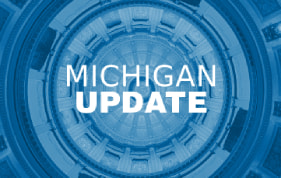This week, we reviewed updated reports issued by the Department of Health & Human Services (HHS) Centers for Medicare & Medicaid Services (CMS) on Medicaid expansion enrollment from the “December 2016 Medicaid and CHIP Application, Eligibility Determination, and Enrollment Report,” published on February 28, 2017. Additionally, we review 2017 Exchange enrollment data from the “Health Insurance Marketplaces 2017 Open Enrollment Period: Final State-Level Public Use File,” published by CMS on March 15, 2017. Combined, these reports present a picture of Medicaid and Exchange enrollment at the beginning of 2017, representing more than 74 million Medicaid and CHIP enrollees and more than 12 million Exchange enrollees.
1804 Results found.

Loneliness is Lethal: Five Strategies to Improve Health Outcomes by Improving Social Connectedness
This blog post was authored by HMA clinicians Margaret Kirkegaard, MD, MPH, and Jeffrey Ring, PhD
While most people would agree that social relationships improve day-to-day quality of life, do social connections actually provide a health benefit? The answer is a resounding yes!
In 1921, a remarkable study began tracking the lives of 1,500 Americans from childhood to death. It sought to track what factors in life — such as faith, marriage, pets and exercise — increased longevity. The most significant finding was that strong social networks mattered the most. The quality of social connections was more significant than the quantity.[1] In an interview with National Public Radio, lead researcher Howard Friedman notes, “We saw that over and above the number of connections and the frequency of interactions that when those connections involved helping other people, reaching out, being actively engaged to do things for others, that was an added bonus on top of what we already see as quite beneficial from the social contacts themselves.”[2]

Nebraska Releases LTSS Redesign Draft
This week, we reviewed the Medicaid long-term services and supports (LTSS) redesign draft paper published on March 7, 2017, by the Nebraska Department of Health and Human Services (DHHS). The paper is the follow-up to a January 2016 DHHS concept paper, which identified increasing pressure on the state’s Medicaid LTSS system. The LTSS redesign paper addresses identified high-priority systemic issues in the current LTSS system, recommends longer-term system changes, and outlines a transition to managed LTSS (MLTSS). Nebraska has long been in discussion around a transition to MLTSS, and this draft redesign paper potentially puts the state on a timeline to begin providing mandatory MLTSS statewide to older adults and individuals with disabilities (Phase 1) as of January 1, 2019, with MLTSS to follow for individuals with intellectual or developmental disabilities (Phase 2) on July 1, 2019. We estimate the potential MLTSS population at more than 50,000 beneficiaries with annual LTSS spending between $800 million and $850 million.

Health Management Associates to Acquire Firm Founded by Seema Verma
WASHINGTON, D.C. – Today, Jay Rosen, founder and president of Health Management Associates (HMA), announced the signing of an agreement by which HMA will acquire SVC, a consulting firm which is owned by Seema Verma, founder and president, and recently confirmed Administrator of the Centers for Medicare & Medicaid Services (CMS).
SVC will become HMA Medicaid Market Solutions, a new subsidiary of HMA.

New Jersey Health Care Quality Institute Issues “Medicaid 2.0 Blueprint for the Future”
This week’s review comes to us from HMA Principal Karen Brodsky and Research Assistant Anh Pham, both of our New York City office. Anh and Karen provide a review of the “Medicaid 2.0 Blueprint for the Future” issued by the New Jersey Health Care Quality Institute (Quality Institute). Funded by The Nicholson Foundation, the Quality Institute embarked on a year-long project convening a wide variety of stakeholders in New Jersey with the goal of redesigning and modernizing the State’s Medicaid program. The report is a culmination of 24 recommendations to promote the efficient delivery of quality healthcare services to New Jersey’s most vulnerable populations.

Webinar Replay: How CBOs Contract, Receive Reimbursement for HCBS in Medicaid Arrangements – A Blueprint for Success
On March 1, 2017, HMA Information Services hosted the webinar, “How Community-Based Organizations Contract and Receive Reimbursement for Home and Community-Based Services in Medicaid Arrangements – A Blueprint for Success.”
Community-based organizations (CBOs) have a long history of supporting people with disabilities and older adults to live and thrive in the community, through a variety of funding structures. States are increasingly realizing the value of these organizations as providers and partners in their Medicaid-funded programs. At the same time, many states are partnering with Medicaid managed care organizations to provide long-term services and supports (MLTSS) and considering value-based payment structures for LTSS. This creates both opportunities and challenges for CBOs who have had experience serving individuals who need assistance to be able to live independently in their own homes.
During this webinar, a panel of experts provide real-world strategies that CBOs can use to effectively expand access to their services, work with state Medicaid programs, contract with managed care, and ensure sufficient reimbursements. Listen to the recording and:
- Learn where CBOs fit within Medicaid-funded long-term services and supports, in an increasingly value-based and integrated healthcare landscape.
- Understand the challenges in moving from grant-based funding to payment structures based on the development of networks, utilization management, and quality.
- Identify various contracting strategies available to CBOs in dealing with Medicaid managed care health plans.
- Obtain case studies of successful CBOs approaches to contracting and reimbursement, including tips on how to form networks of community-based providers.
- Learn how to address back-office functions, reporting requirements, and IT challenges that come with managed care contracting arrangements or participation in a CBO network
The slide deck for this webinar can be retrieved by clicking the “DOWNLOAD” button below.

Illinois Issues RFP to Rebid Medicaid Managed Care Programs, Expand Statewide
This week, we reviewed the request for proposals (RFP) issued on February 27, 2017, by the Illinois Department of Healthcare and Family Services (HFS) to rebid the majority of the state’s existing Medicaid managed care program contracts, consolidate multiple programs into a single streamlined program, and expand managed care statewide. The RFP will consolidate the current Family Health Plans/ACA Adults (FHP/ACA) program, the Integrated Care Program (ICP), and the Managed Long Term Services and Supports (MLTSS) program into a single contracting approach, while reducing the number of contracted managed care organizations (MCOs) from 11 to between four and seven. The RFP does not impact the Medicare-Medicaid Alignment Initiative (MMAI) duals demonstration at this time. When fully implemented by the end of 2018, the new managed care program will cover roughly 2.7 million Medicaid beneficiaries in all 102 counties in Illinois.

